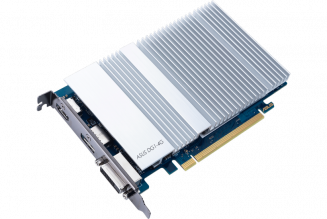
After months of political jockeying and procedural hurdles, the Senate approved a massive science and technology bill Tuesday to boost US competitiveness with China. The bill invests billions into emerging technology industries like artificial intelligence, semiconductors, and quantum computing in the US.
The bill — titled the US Innovation and Competition Act or USICA — builds off a previous proposal from Senate Majority Leader Chuck Schumer (D-NY) called the Endless Frontier Act. Endless Frontier was lauded as one of the first big bipartisan bills to come from the Biden administration. But over the last few months, the bill, which was seen as a must-pass piece of legislation for both parties, was bloated with political mush and much of the original funding was watered down as it moved through the Senate process.
In its current form, the bill provides $52 billion for domestic semiconductor manufacturing, as well as a 30 percent boost in funding for the National Science Foundation and $29 billion for a new science directorate to focus on applied sciences.
“Whoever wins the race to the technologies of the future will be the global economic leader,” Schumer said in a tweet on Tuesday. “We must invest in science, R&D, manufacturing, and innovation.”
The Endless Frontier Act was originally intended to provide $100 billion in funding for a new science directorate at the National Science Foundation to promote research in emerging tech fields. It would dole out billions to regions all across the country to build out new tech hubs and encourage tech companies to find homes outside of Silicon Valley and the coasts.
Last month, the package appeared to be doomed as Republicans withheld their votes to end debate on the bill. Hours after the initial cloture vote was called, Schumer reached an agreement with Republicans to hold votes on parts of the bill they were contesting the following week. Specifically, Republicans were concerned with language in the bill that would require a prevailing wage for semiconductor manufacturers in the US. On Tuesday, an amendment to strike that language was shot down.
In March, President Joe Biden put out his sweeping infrastructure package known as the American Jobs Plan. The original $2 trillion plan contained funding for broadband expansion, roads, highways, and called for $50 billion for domestic semiconductor manufacturing. Tuesday’s vote in the Senate marks the next step in achieving parts of the administration’s infrastructure goals.
Earlier this year, Biden signed an executive order to combat growing concerns over a global semiconductor shortage. The order called for a 100-day government review of supply chains to address shortfalls in acquiring chips. That review was published Tuesday, and the White House launched a new task force to address these supply chain disruptions.
Tuesday’s USICA approval also provides $10 billion to reshape cities and regions across the US into “technology hubs,” focusing on research and development into cutting-edge industries and creating new, well-paying tech jobs outside of the coasts. The funds will go to the Commerce Department and cities will be able to pitch the government on why it should be on the receiving end of these funds.
“This is certainly a welcome injection of resources,” Mike Wallace, legislative director for human development at the National League of Cities, told The Verge last week. “These are funds that will help local officials, but all stakeholders, think about economic mobility in a regional way.”
USICA faced criticism not only from Republicans, but from progressives like Sen. Bernie Sanders (I-VT). Sanders initially voted to tank the competition bill last month over what he called a “multi-billion dollar Bezos Bailout” that would authorize $10 billion for the Amazon CEO’s space venture, Blue Origin, to participate in NASA’s next Moon mission, codenamed “Project Artemis.” Sanders also attempted to negotiate language in the bill that would give the federal government equity interest in exchange for semiconductor grants and aid.
The package still needs to move through the House before President Biden can sign it into law. On Tuesday, Schumer said that he was “quite certain that we will get a really good product on the president’s desk,” but it’s unclear how long that will take or if the bill will change further.









